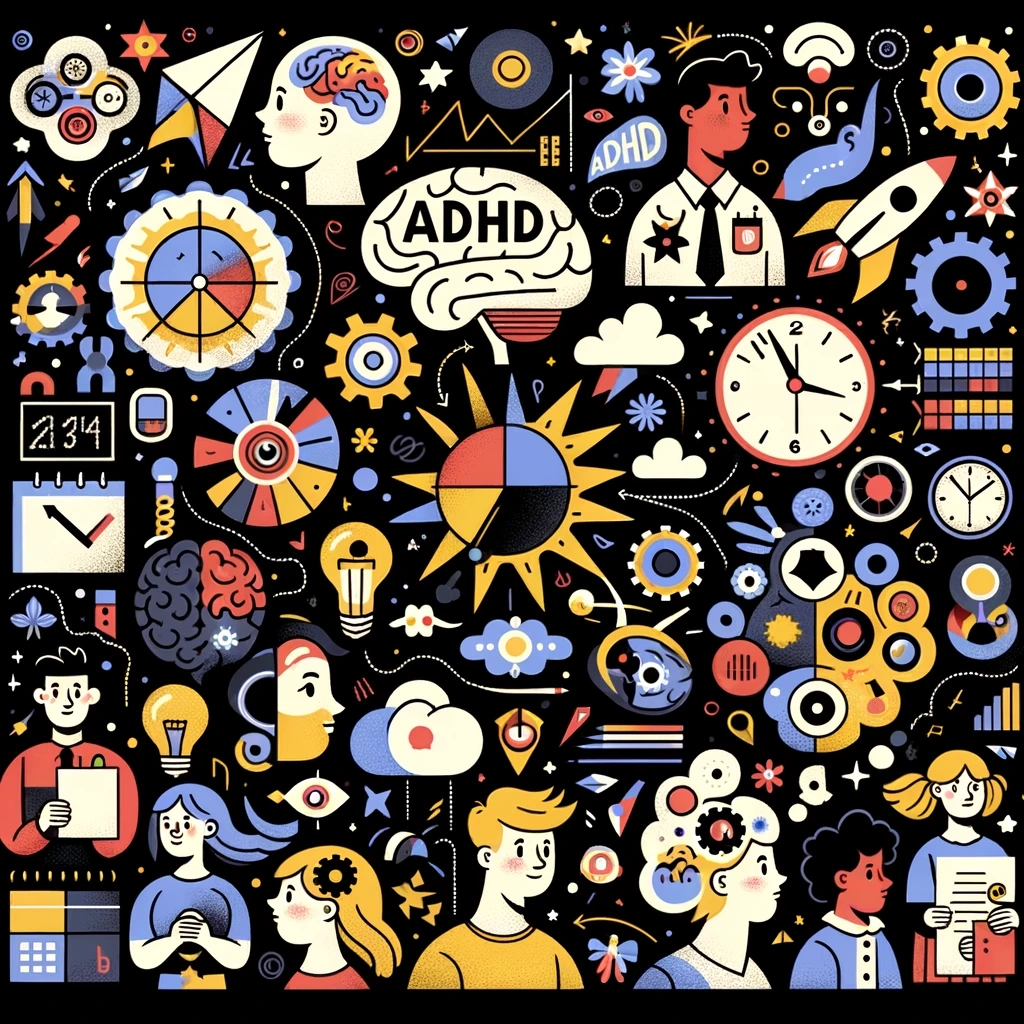ADHD
Evaluating ADHD across the lifespan
An overview of ADHD and the process of evaluating ADHD across the lifespan, from childhood to adulthood.
Overview
Attention-Deficit/Hyperactivity Disorder (ADHD) is a lifelong disorder characterized by symptoms of inattention (not being able to keep focus), hyperactivity (excess movement that is not fitting to the setting) and impulsivity (hasty acts that occur in the moment without thought). Many ADHD symptoms, such as high activity levels, difficulty remaining still for long periods of time, and limited attention span are common from time to time in everyone. The difference in individuals with ADHD is that their inattention, poor impulse control, and hyperactivity are substantially greater than expected for their age and cause distress and/or problems functioning at home, at school, at work, and/or with friends.
ADHD in Children and Adolescents
Our clinic specializes in identifying and evaluating ADHD in children and adolescents, recognizing that early diagnosis and intervention can significantly improve outcomes. Our evaluation process for younger patients includes:
Detailed Clinical Interviews: We conduct thorough interviews with both the child and the parents to understand behavioral patterns, school performance, social interactions, and any concerns at home.
Behavioral Observations: Our team observes the child in various settings, if possible, to assess symptoms of ADHD, including inattention, hyperactivity, and impulsivity.
Collaboration with Schools: We work closely with educational professionals to gather information about the child’s behavior in academic settings and to understand how ADHD may be affecting their learning and social interactions.
Developmentally Appropriate Testing: We utilize a range of psychological tests and tools that are age-appropriate to accurately assess cognitive functions, attention, and executive skills.
Family Education and Support: Understanding ADHD is crucial for families. We provide education about the condition and strategies to support the child’s development and well-being.
Individualized Recommendations: Based on our findings, we offer tailored recommendations for treatments, school accommodations, and strategies to manage symptoms at home.
ADHD in College Students and Young Adults
We provide comprehensive ADHD evaluations for college students. We can also provide documentation for accommodations at your university.
Psychoeducational Testing
We can provide comprehensive psychoeducational evaluations for college students relevant to MCAT, LSAT, GRE, and other standardized tests.
ADHD in Older Adults
Evaluating ADHD in older adults presents unique challenges, as symptoms may often be mistaken for age-related cognitive decline. Our approach includes:
Comprehensive Clinical Assessment: We conduct detailed interviews to understand the individual’s life history, focusing on long-standing patterns of behavior indicative of ADHD.
Neuropsychological Testing: Our evaluations include neuropsychological testing to differentiate ADHD symptoms from other conditions common in older age, such as dementia or depression.
Review of Medical History: We consider the entire medical history, including any medications or health conditions that may mimic or exacerbate ADHD symptoms.
Lifestyle and Occupational Impact Analysis: We assess how ADHD affects daily living, work, and social relationships in older adults, recognizing that these impacts may differ significantly from those in younger individuals.
Collaboration with Healthcare Providers: When necessary, we collaborate with other healthcare providers to ensure a comprehensive approach to diagnosis and management.
Tailored Management Strategies: We provide personalized recommendations, which may include medication, cognitive-behavioral therapy, lifestyle modifications, and strategies to improve organizational skills and time management.
